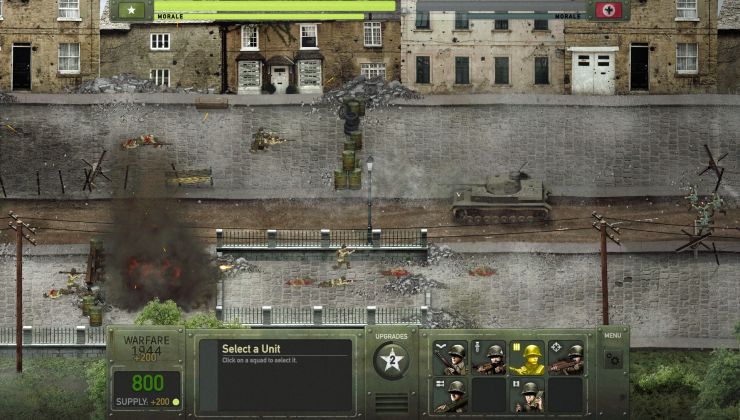KDE Plasma is a pretty frelling great desktop environment - but couldn't it be better? The KDE team have begun the previously announced 15-Minute Bug Initiative.
The idea is to clean up issues in Plasma that affect the user experience within the first 15 minutes of booting. Encountering bugs quickly will put people off and gives a bad impression of not just Plasma, but of Linux as a whole. So this is their time to shine, especially with the Steam Deck coming that uses Plasma for the normal desktop mode.
It's up to the KDE team on exactly what they will include in the list, and some may take quite a while to actually solve so they might not fix them all even in the space of a year. What will absolutely get included in the list? Developer Nate Graham outlined these points as a start (but others are considered too of course):
- Affects the default setup
- 100% reproducible
- Something basic doesn’t work (e.g. a button doesn’t do anything when clicked)
- Something basic looks visually broken (e.g. “korners” bug)
- Causes you to get locked you out of your system
- Causes a full session crash
- Requires a reboot or terminal commands to fix
- There’s no workaround
- It’s a recent regression
- The bug report has more than 5 duplicates
You can see the current list of bugs tagged here. There's a few really problematic looking issues there like their application menu Kickoff, which sometimes at random loses the hotkey to open it. A bug I encountered only yesterday and it is thoroughly annoying.
Hmmm, I wouldn't think there would be any of these types of bugs on the stable version anyway... but I guess if there is, it's good they're going to clean them up before the steam deck launch.
Check the article link - they've highlighted 56 bugs right off the bat, three of which are session-enders (highlighted in red). I can't say I've experienced any of them, however.
Those little things really matter, especially to new or learning users. You only get that first chance at a good impression and it seems silly, but those impressions can really stick in people's minds.
Last edited by denyasis on 19 Jan 2022 at 9:13 pm UTC
But .. I can't say it went well really, neither on an Ubuntu base or fresh Arch install. Whats remarkable is how well KDE recovers from a crash, whats not remarkable is how often it has to recover from a crash. By crash i mean the panel resetting when you attempt to move widgets or reposition items, for instance dragging widgets to a second monitor could trip up KDE very easily but not consistently. plus a myriad of oddball 'paper cuts' And that is the same feeling i got for KDE for the last 15 years = lack of consistency.
-----------
" 56 bugs right off the bat, three of which are session-enders " i mean that's hilarious. They should of been doing this kind of work years ago. But id wager, that after this initiative ends and the dust settles, in two years time there will be "56 bugs right off the bat, three of which are session-enders ".
imho It's just not a solid feeling environment like the 'dull' GTK alternatives, it kind of feels like it's always waiting to crash and when you stray from defaults expect faults .. hey that could be KDE's new moto.
(to be fair i think you could apply this to Gnome aswell, but only because Gnome devs make it intentionally that way)
Of course Everyone's mileage will vary. Each to their own.
BTW Wayland on Nvidia was a train wreck and much worse than I remember Gnome being.
My main issue with KDE is the slowness to boot when compared to any other DE, it is unusable on systems where the home partition is not stored in a local SSD. However, boot times on the Deck will probably be acceptable.
I think by today's standards HDDs are horribly slow for boot times anyway. Why would you want to boot from one? Booting / startup is the most I/O intensive phase. SSDs are totally a huge benefit for that.
Last edited by Shmerl on 19 Jan 2022 at 11:51 pm UTC
...then today's standards mean unoptimized code.
It is like hiding the dust under cheap carpet hoping that the price of the carpet will continue to go down when we'll need a bigger one.
It's a physical limitation, not a code one. I.e. if you want to use rotational disks, I don't see a need to complain they are slow.
I agree though it's not an excuse when something isn't optimized in general. But it's not about that. HDDs are slow, no matter what you do.
Last edited by Shmerl on 20 Jan 2022 at 5:34 am UTC
GNOME should do the same
I think by today's standards HDDs are horribly slow for boot times anyway. Why would you want to boot from one? Booting / startup is the most I/O intensive phase. SSDs are totally a huge benefit for that.
I have many computers around still using HDDs and with no plans to upgrade, they are totally usable with Xfce or Mate. My main desktop computer uses mostly SSDs except for the home partition and it is able to start any software instantly, except KDE and Eclipse.
Even the bloated Gnome is able to boot much faster than KDE on the same hardware, but I won't insist on the topic since many people seem to be okay with that. It's a feature, not a bug.
My main issue with KDE is the slowness to boot when compared to any other DE, it is unusable on systems where the home partition is not stored in a local SSD. However, boot times on the Deck will probably be acceptable.
Agreed on principle, KDE is indeed slow to boot from an HDD; but a desktop in 2022 where the main disk is not an SSD is a corner case and IMHO not a system worth developing for as a target, so I'd never condemn KDE for focusing on other more important stuff instead of improving boot times for HDDs.
Also, have you ever tried booting and using the latest Windows 10 from an HDD? Compared to that, KDE is a breeze.
I think by today's standards HDDs are horribly slow for boot times anyway. Why would you want to boot from one? Booting / startup is the most I/O intensive phase. SSDs are totally a huge benefit for that.
I have many computers around still using HDDs and with no plans to upgrade, they are totally usable with Xfce or Mate. My main desktop computer uses mostly SSDs except for the home partition and it is able to start any software instantly, except KDE and Eclipse.
Even the bloated Gnome is able to boot much faster than KDE on the same hardware, but I won't insist on the topic since many people seem to be okay with that. It's a feature, not a bug.
I actually just switched from a HDD too a SSD on my 2013 laptop. Went from 60s+ to about 20ish. It was XFCE. I was very impressed, although, since the HDD was failing, I suspect the boot time was likely inflated from what it could optimally do.
It's a physical limitation, not a code one. I.e. if you want to use rotational disks, I don't see a need to complain they are slow
I can see I'm non optimized code as a reason that not times on a HDD are slower than in the past, but I'd also argue that, our OS's are also much larger and complicated than in the past. We ask a lot more of our systems today than in the past, even on light weight DE's.
There's a lot more to load. But that's ok. I like the new features and KDE is a DE.
I recently gave KDE a try after many years on the cinnamon desktop environment to experience some of the more flashy features seen as cinnamon has fallen way behind in that regard. I was not disappointed here, things like animated wallpapers are really cool and being able to play a gif independently on each monitor. Not to mention all kinds of transparency, blurs and effect choices.
But .. I can't say it went well really, neither on an Ubuntu base or fresh Arch install. Whats remarkable is how well KDE recovers from a crash, whats not remarkable is how often it has to recover from a crash. By crash i mean the panel resetting when you attempt to move widgets or reposition items, for instance dragging widgets to a second monitor could trip up KDE very easily but not consistently. plus a myriad of oddball 'paper cuts' And that is the same feeling i got for KDE for the last 15 years = lack of consistency.
-----------
" 56 bugs right off the bat, three of which are session-enders " i mean that's hilarious. They should of been doing this kind of work years ago. But id wager, that after this initiative ends and the dust settles, in two years time there will be "56 bugs right off the bat, three of which are session-enders ".
imho It's just not a solid feeling environment like the 'dull' GTK alternatives, it kind of feels like it's always waiting to crash and when you stray from defaults expect faults .. hey that could be KDE's new moto.
(to be fair i think you could apply this to Gnome aswell, but only because Gnome devs make it intentionally that way)
Of course Everyone's mileage will vary. Each to their own.
BTW Wayland on Nvidia was a train wreck and much worse than I remember Gnome being.
I switched from Cinnamon (on Arch) to KDE (also on Arch) for the same reasons. I was tired of the bad and lackluster animations on Cinnamon. I also had to Google for hours to find out how to edit a small theme to add a colored window border that was visible. KDE has everything I want.
I also was frustrated that I was unable to change the shadow radius, seems that is hardcoded in mutter. Cinnamon also feels like a dead project. That is how it appears to me anyway, with KDE you have Nate doing a weekly blog about the tip of the iceberg they are working on (https://pointieststick.com/) and that is so immensely helpful and gives you a confident feeling that you are using a distro that is actively being worked and and getting better with every release.
Regarding your issues, mine wasn't as bad as yours but I did noticed that if I wanted to move a panel from a monitor to the next, I had to do it slowly else, at the time (might be fixed now) the panel would crash if I did it too fast.
No multimonitor issues on X11. On Wayland it isn't as stable yet for me since I have a TV attached that goes on and off during the day and it is better now then in the past, but on occasion it would still crash kwin/plasma.
But Wayland is amazing though, extremely good performance and freesync support. Good luck getting that in the next 5+ years on the Cinnamon side.
But this year KDE is also focusing on making multi monitor perfect and somewhere this year we should also get a system where of kwin/plasma crashes on Wayland, your running programs don't die with it.
When they have that, x11 is as good as dead for me.
I hit a few of those in the past. It's a good initiative, and I think if those bugs which are easy to encounter are fixed that's a huge benefit for a lot of users.
I really like it, and KDE will be a lot better off quality whise if they keep this effort up.
Now "all" they need to do is actually fix them, and some of those are not trivial. But I am glad they started the effort.












 How to set, change and reset your SteamOS / Steam Deck desktop sudo password
How to set, change and reset your SteamOS / Steam Deck desktop sudo password How to set up Decky Loader on Steam Deck / SteamOS for easy plugins
How to set up Decky Loader on Steam Deck / SteamOS for easy plugins
See more from me